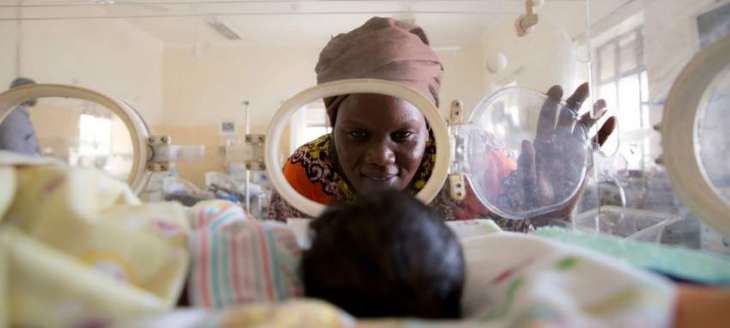After eradicating small pox in 1980, although world may celebrate second similar success in the case of polio in near future, a child saved from polio may still die from another preventable disease, according to a top official
ABU DHABI, (Pakistan Point News - 18th Nov, 2019) After eradicating small pox in 1980, although world may celebrate second similar success in the case of polio in near future, a child saved from polio may still die from another preventable disease, according to a top official.
"That’s why our overriding objective is universal health coverage, so that all people receive all the health services they need, without facing financial hardship," Dr. Tedros Ghebreyesus, Director-General of the World Health Organisation, WHO, said in an interview with the Emirates news Agency, WAM.
"Globally, there has only been one human disease that has been eradicated so far: smallpox, in 1980. The world is on the verge of a second such success [with polio eradication]," he pointed out.
"At the same time, there are still many other health threats that people face. In that sense, we have not really helped a child if we save her from polio, but she dies from another preventable disease, like measles," the Director-General explained.
Therefore, he emphasised the universal health coverage as the only solution to this situation, in the interview ahead of his participation in the Reaching the Last Mile, RLM, Forum in Abu Dhabi, which would take place on Tuesday at the Louvre Abu Dhabi.
The biennial invitation-only Forum convenes global health leaders to share insights and best practices on how to map out, eliminate and eradicate infectious diseases.
The event is held under the patronage of His Highness Sheikh Mohamed bin Zayed Al Nahyan, Crown Prince of Abu Dhabi and Deputy Supreme Commander of the UAE Armed Forces, and in partnership with the Bill and Melinda Gates Foundation.
The Forum is inspired by the conviction of His Highness Sheikh Mohamed bin Zayed that no person should needlessly suffer or die from a preventable disease and that investment in health is crucial to global development.
"We’re very grateful to the United Arab Emirates and His Highness Sheikh Mohamed bin Zayed for hosting this meeting, and for His Highness’s strong personal commitment to global health. We hope the ultimate impact of the forum is infections prevented, and lives saved," the WHO chief said.
Elaborating further on the universal health coverage, UHC, he said there was good progress in that direction.
According to the WHO, UHC enables everyone to access the services that address the most significant causes of disease and death, and ensures that the quality of those services is good enough to improve the health of the people who receive them.
Protecting people from the financial consequences of paying for health services out of their own pockets reduces the risk that people will be pushed into poverty because unexpected illness requires them to use up their life savings, sell assets, or borrow – destroying their futures and often those of their children, said the WHO.
Dr Ghebreyesus noted that at the United Nations General Assembly in September, all 193 UN Member States approved the political declaration on UHC.
Just a few weeks later, legislators from 140 countries approved a resolution on UHC at the Inter-Parliamentary Union Assembly in Belgrade, Serbia, he pointed out.
"Together, these commitments are very significant – they show that there is real political resolve at the highest levels of government, and a determination to translate that resolve into laws, policies and programmes to make UHC a reality," Dr Ghebreyesus said.
The Global Polio Eradication Initiative’s, GPEI, pledging moment happening at the RLM Forum is absolutely critical to achieving success in polio eradication, he stressed.
The event will reveal significant new financial commitments from key donors and partners towards the additional US$3.27 billion needed to support the Polio Endgame Strategy 2019-2023, which lays out the roadmap to achieving and sustaining a world free of all polioviruses.
Most diseases cannot be eradicated for a number of biological and technical reasons. Polio is one of the few diseases that can be eradicated, the WHO chief emphasised.
"I would like to thank His Highness Sheikh Mohamed bin Zayed for hosting the GPEI pledging moment and for his long-term support of polio eradication and other infectious disease control programmes.
"Such continued leadership and support is critical if we are to successfully stop diseases such as polio, malaria and neglected tropical diseases in their tracks," the Director-General explained




